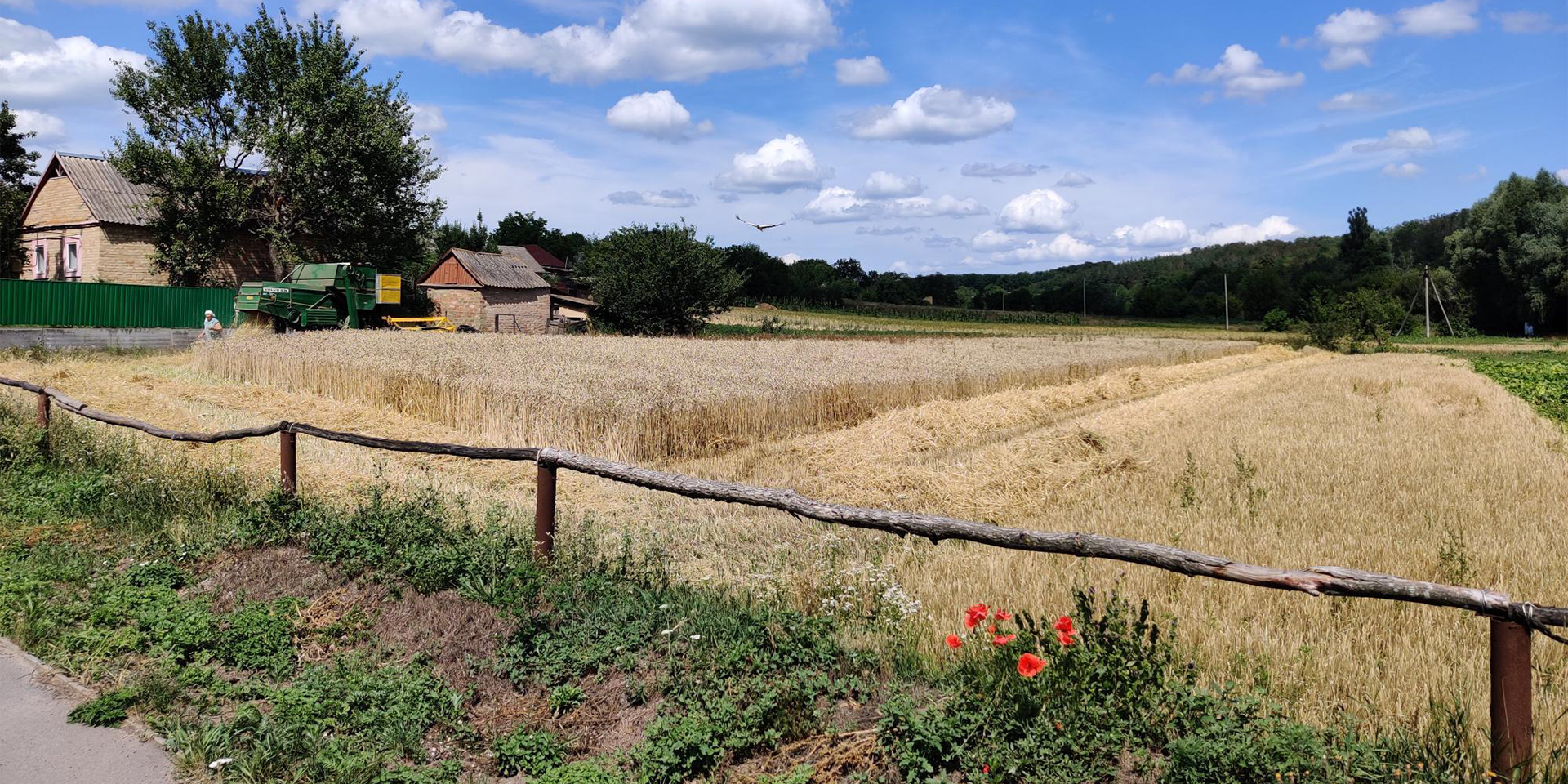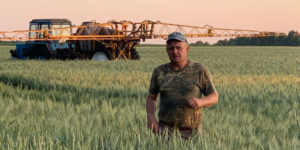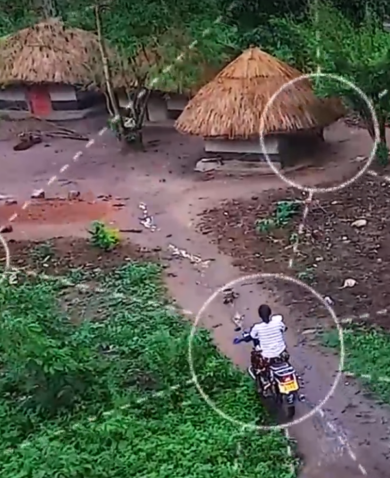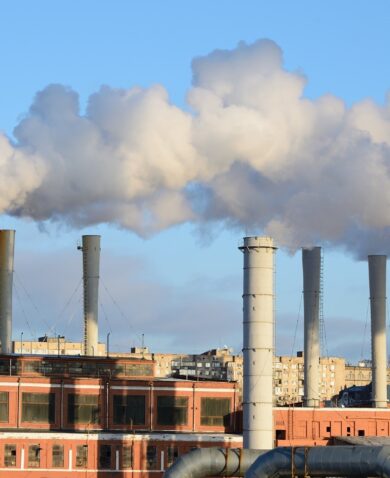
Paving the Way: A Monumental Partnership Responds to the Global Food Security Crisis .
November 7, 2023Through the largest sub-award in Chemonics’ history, the USAID AGRO Activity in Ukraine is helping Ukrainian farmers produce agricultural crops for domestic consumption and export.
Ivan has spent much of his life working the soil, cultivating wheat, sunflower, and soy. Since its founding in 1992, his farm has grown to more than 118 hectares of land. Russia’s invasion of Ukraine changed everything. His village is just two kilometers away from the border with Russia, and his fields sit perilously close to it. “We are on the border with the aggressor, under fire daily. There are times when you drive a tractor into the field, and warning shots are fired near you. You turn around and head back home. The next day, I try again, and they keep an eye on us. That’s how we work here,” shares Ivan.
Stories like this have become common in Ukraine. Known as the “breadbasket of Europe,” the country is the world’s fifth largest exporter of wheat, third largest exporter of barley, and largest exporter of sunflower oil due to its favorable climate, high-quality soil, and access to valuable waterways. However, Russia’s unprovoked war in Ukraine severely disrupted supply chains, increasing costs and reducing the availability of critical crops not only in Ukraine but worldwide. More than 60,000 tons of grain were destroyed in the first wave of attacks. Since a previously brokered grain deal expired in July 2023, Russia resumed attacks targeting Ukrainian granaries, hitting warehouses and port infrastructure that further threatened farmers’ incomes.

Determined to help Ukrainian farmers like Ivan produce, store, and export agricultural products and grain to the world, the USAID Agriculture Growing Rural Opportunities (AGRO) Activity set out to procure and distribute supplies to cover a sowing area of approximately 370,000 hectares (roughly 1,425 square miles). This included production volumes sufficient to meet the demand for sunflower oil for more than 3 million people and enough bread to feed more than 4 million people. Following a competitive selection process, AGRO identified Agricultural Cooperative Zernovyi (Zernovyi) as an ideal partner given their connections with agriculture producers in all parts of Ukraine.
Zernovyi and AGRO worked together to develop a model for efficiently identifying and reaching farmers like Ivan that need immediate support. They designed a multi-phase process to minimize the risk of loss or misuse of fertilizers and seeds while providing the materials necessary to ensure high-quality harvests. The initial scope of the sub-award — intended to reach more than 8,200 micro, small, and medium enterprises (MSMEs) — was expanded to meet the ongoing needs of farmers, particularly those in front-line, war-affected regions including Kharkiv, Kherson, Donetsk, Zaporizhzhya, Luhansk, and Dnipropetrovsk. As a result, the partnership was increased to include more than 12,000 MSMEs during the winter crops sowing campaign and 7,000 MSMEs during the spring sowing campaign. The $22 million sub-award is the largest in Chemonics’ nearly 50-year history. Work began immediately to ensure a sustainable harvest of grains and oilseeds for both domestic consumption and export.
Onboarding 12,000 farmers. AGRO partnered with the Ministry of Agricultural Policy and Food of Ukraine and the World Bank to pilot use of the (SAR), a digital hub designed for efficient, transparent support for targeted subsidies and technical assistance, to quickly onboard 12,000 farmers. Following a comprehensive communications campaign, the majority of SAR-registered farmers — whose farms range in size from five to 500 hectares — were able to successfully apply to receive fertilizers.
Methodically identify and vet farmers. To ensure secure, efficient tracking of fertilizer and seed distribution schedules and documentation, Zernovyi piloted a private Telegram bot. The bot pulled phone numbers of agriculture MSMEs from the SAR to ensure that only eligible recipients received the relevant information. This was not a one-time communication tool; rather, AGRO and Zernovyi continue using the bot to engage with farmers, offering guidance on cultivation techniques and growing technologies.
Monitoring fertilizer and seed application and offering subsequent support. Zernovyi requires farmers to share photos and video recordings of the direct application of fertilizers and seeds. This documentation, which is also accessible to USAID, is reviewed to ensure compliance with local regulations. Selective field visits to gather feedback from farmers and monitor the application of fertilizers and seeds are coupled with “demo days” and educational events to train farmers on best practices and crop-growing techniques. This training is designed to help maximize crop growth and ensure greater yields.
Early markers of success. In spring 2023, AGRO provided more than 8,200 Ukrainian farmers with fertilizer, sunflower seeds, and corn seeds. This included Ivan, who says the aid was critical for his business continuity amid the ongoing war, when inputs are scarce and funds to procure them are limited. The harvested grain and crops in the fields provide income for Ivan’s employees and food for his family, and reassure him of a better tomorrow.
“For agriproducers in recently liberated communities, who bore the brunt of the war, such support provides a lifeline in restarting their operations,” says Volodymyr, a farmer who returned to his embattled farm in the eastern Kherson region. Before the war, Volodymyr took out loans to buy a planter and a disc harrow. With repayments looming large, “we were strapped for cash. When the planting season arrived, we had some leftover seeds from the previous year, but some were looted by marauders…Thanks to AGRO, we got sunflower seeds. This was a substantial help for us. We managed to sow the plots and look forward to harvesting them [to] recover and reclaim what was lost.”
AGRO and Zernovyi are prepared to continue building on the program’s success to provide support to 12,000 farmers in the upcoming winter sowing campaign and 7,000 farmers next spring. Going forward, they will draw upon important lessons learned about responsive communication with farmers, new techniques for more efficient tracking of deliveries, and ensuring accountability at multiple stages in the process. This initiative is only the next step in AGRO’s commitment to fostering the resilience of the agrarian sector in Ukraine and helping to preserve its potential to drive the Ukrainian economy.























